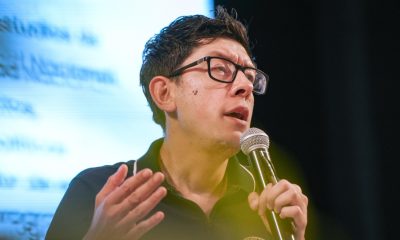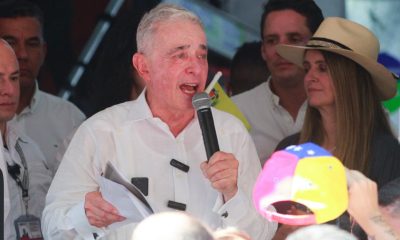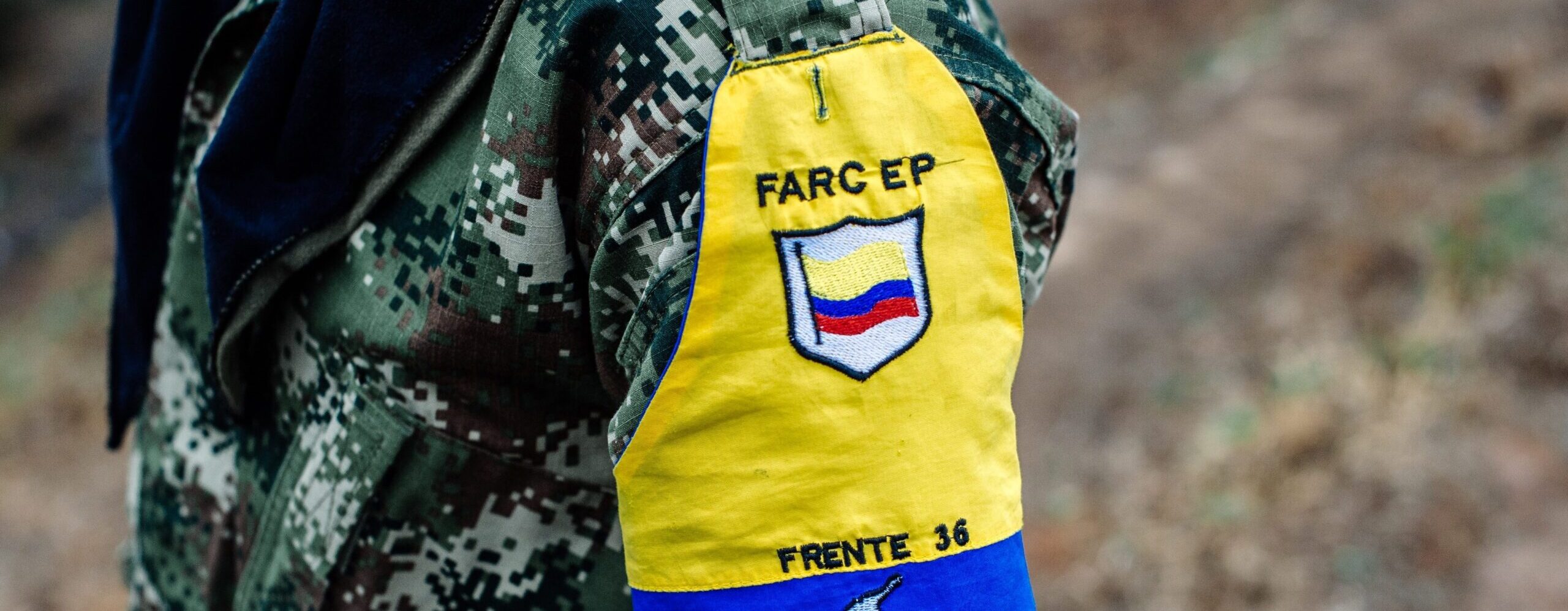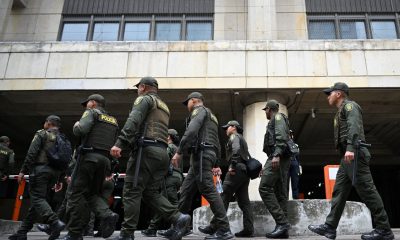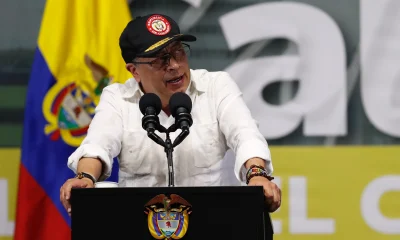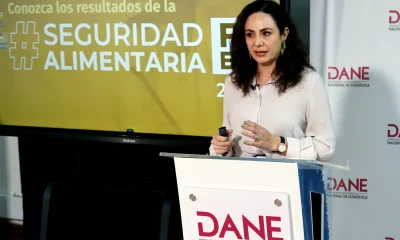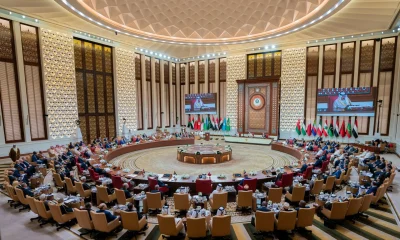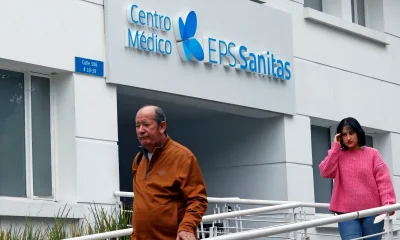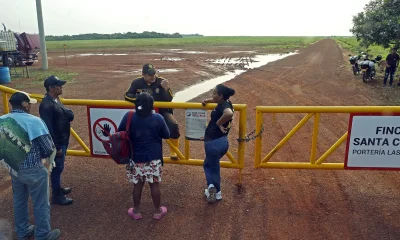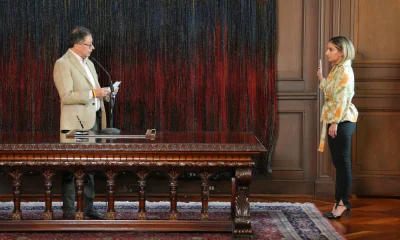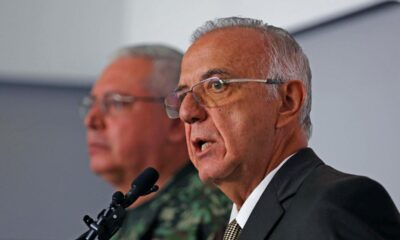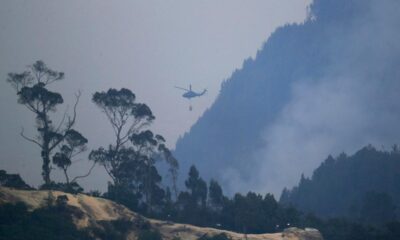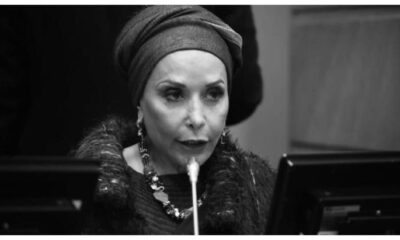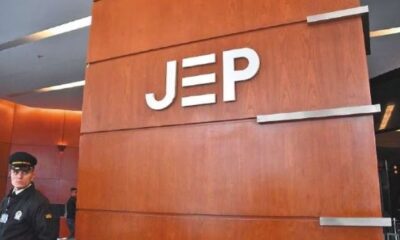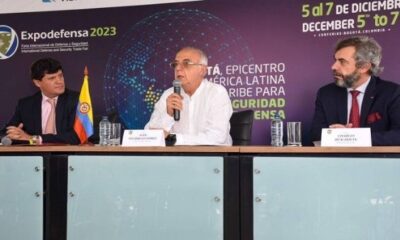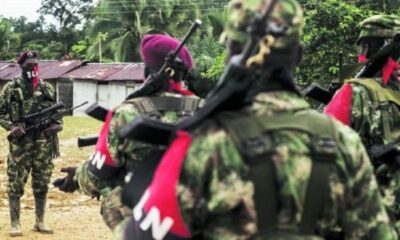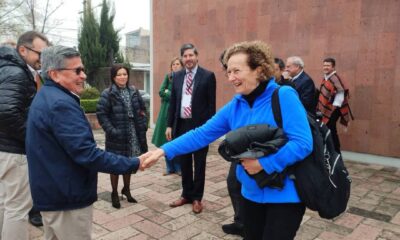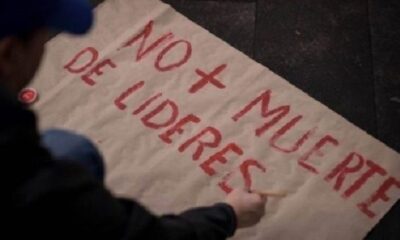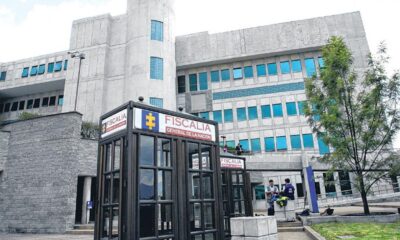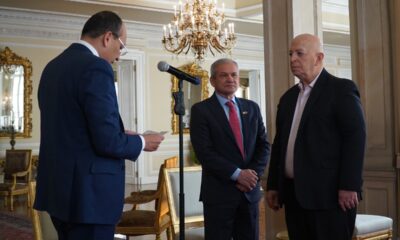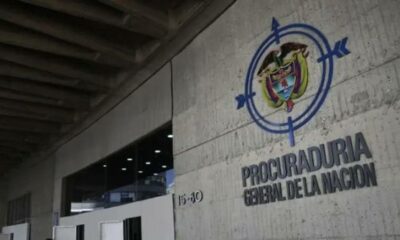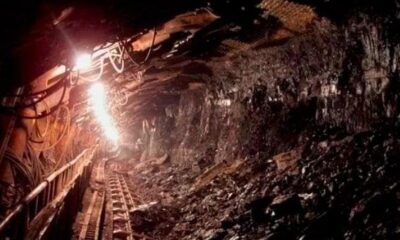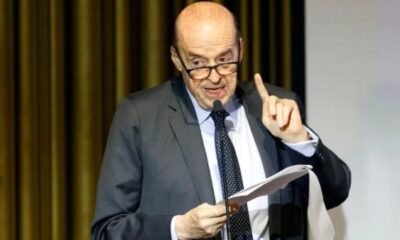International
Colombia backtracks on ceasefire announcement
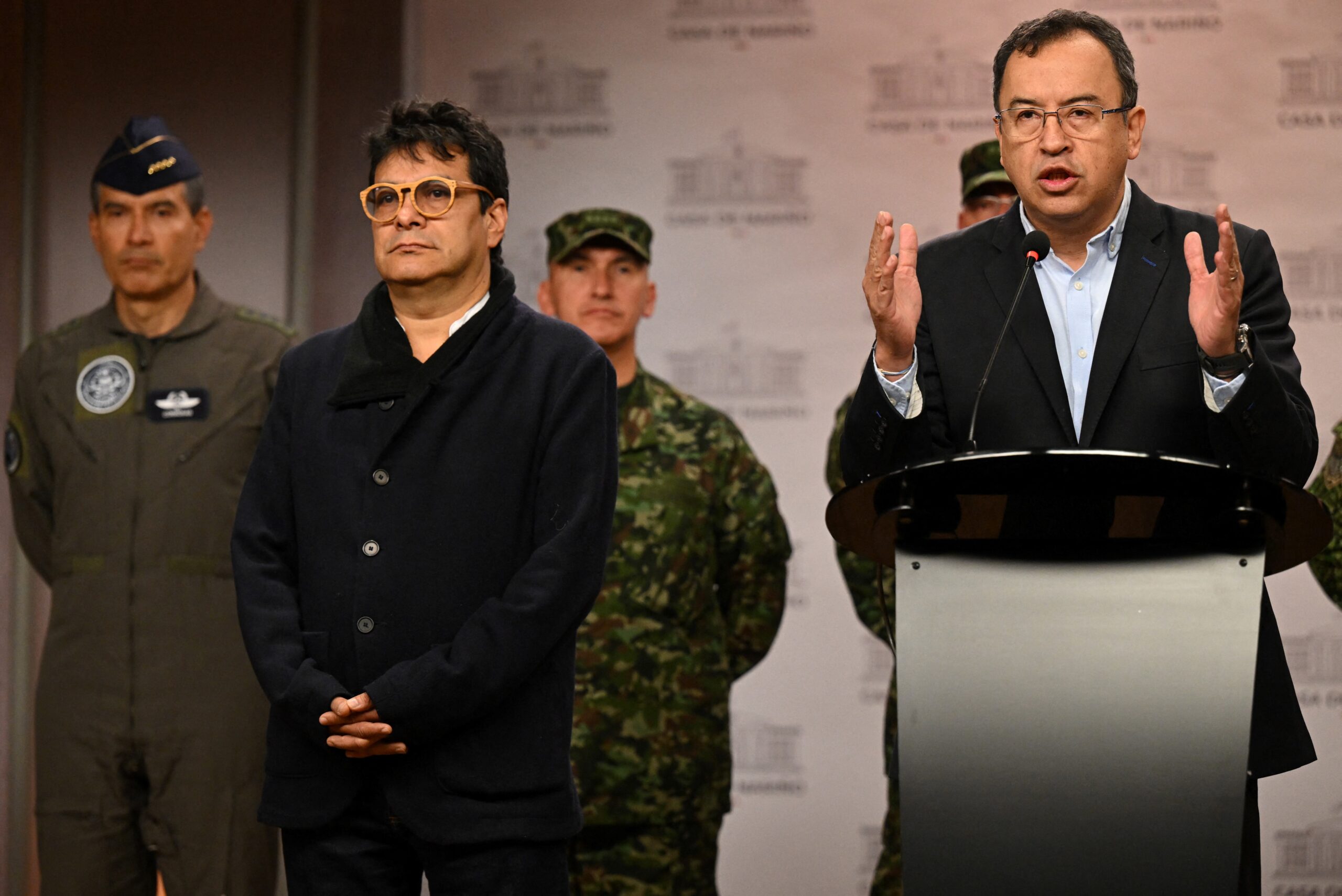
| By AFP |
The Colombian government said Wednesday it was suspending a ceasefire it had announced with the ELN armed group, which denied agreeing to any such truce.
The reversal dampened hopes for an imminent end to decades of violence that have continued to plague the South American country despite a 2016 peace pact that led to the disarmament of the FARC guerrilla group.
Colombian President Gustavo Petro had declared on New Year’s Eve that a temporary truce had been agreed with the country’s five largest armed groups, including the National Liberation Army (ELN), from January 1 to June 30.
The government subsequently said the ceasefire, hailed by the international community, would be monitored by the United Nations, Colombia’s human rights ombudsman and the Catholic Church.
UN Secretary-General Antonio Guterres said it “brings renewed hope for comprehensive peace to the Colombian people as the New Year dawns.”
But then on Tuesday, the ELN said it had “not discussed any bilateral ceasefire with the Gustavo Petro government, therefore no such agreement exists.”
The group added that “a unilateral government decree cannot be accepted as an agreement.”
This prompted the government Tuesday to concede that a proposed ceasefire decree had not yet been finally signed.
And on Wednesday, Interior Minister Alfonso Prada told reporters in Bogota that “we have decided to suspend the legal effects of the decree” in view of the ELN’s stated position.- ‘Total peace’ –
Negotiations between the government and the ELN, the country’s last recognized rebel group, have been under way since November.
A first round of peace talks since Petro came to power in August as Colombia’s first-ever leftist president, concluded in Caracas, Venezuela on December 12 without a truce being agreed.
Another round of talks is due to take place in Mexico, although no date has been set.
Prada said the issue of a ceasefire will be taken up again in Mexico.
Tuesday’s ELN statement said the group was “ready to discuss the proposal for a bilateral ceasefire.”
In pursuit of Petro’s quest to bring “total peace” to Colombia, the government is offering armed groups “benevolent treatment from the judicial point of view,” Senator Ivan Cepeda recently told AFP.
This would be in exchange for “a surrender of assets, a dismantling of these organizations” and agreeing to stop their “illicit economies.”
According to Petro’s tweet, the government had “agreed to a bilateral ceasefire” with the ELN, two dissident splinter factions of the disbanded FARC, the Gulf Clan narco group and the Self-Defense Forces of the Sierra Nevada, a rightwing paramilitary organization.
The ELN is the only group to have refuted the announcement by Petro, who was himself an urban guerrilla member in his youth.
Over 50 years of violence
Negotiations between the government and armed groups which have an estimated combined total of 15,000 fighters, have so far failed to end the spiral of violence engulfing the country.
Colombia has suffered more than 50 years of armed conflict between the state and various groups of left-wing guerrillas, right-wing paramilitaries and drug traffickers.
The Indepaz research institute recorded nearly 100 massacres in Colombia last year.
Despite the peace agreement that saw FARC guerrillas disarm in 2017, armed groups remain locked in deadly disputes over drug trafficking revenues and other illegal businesses, according to the think tank.
Colombia is the world’s largest cocaine producer.
The ELN, created in 1964, had announced a unilateral ceasefire from Christmas Eve to January 2.
Official estimates are that some 3,500 ELN fighters are present in 22 of Colombia’s 32 departments.
International
Police investigate deaths of Rob Reiner and wife as apparent homicide
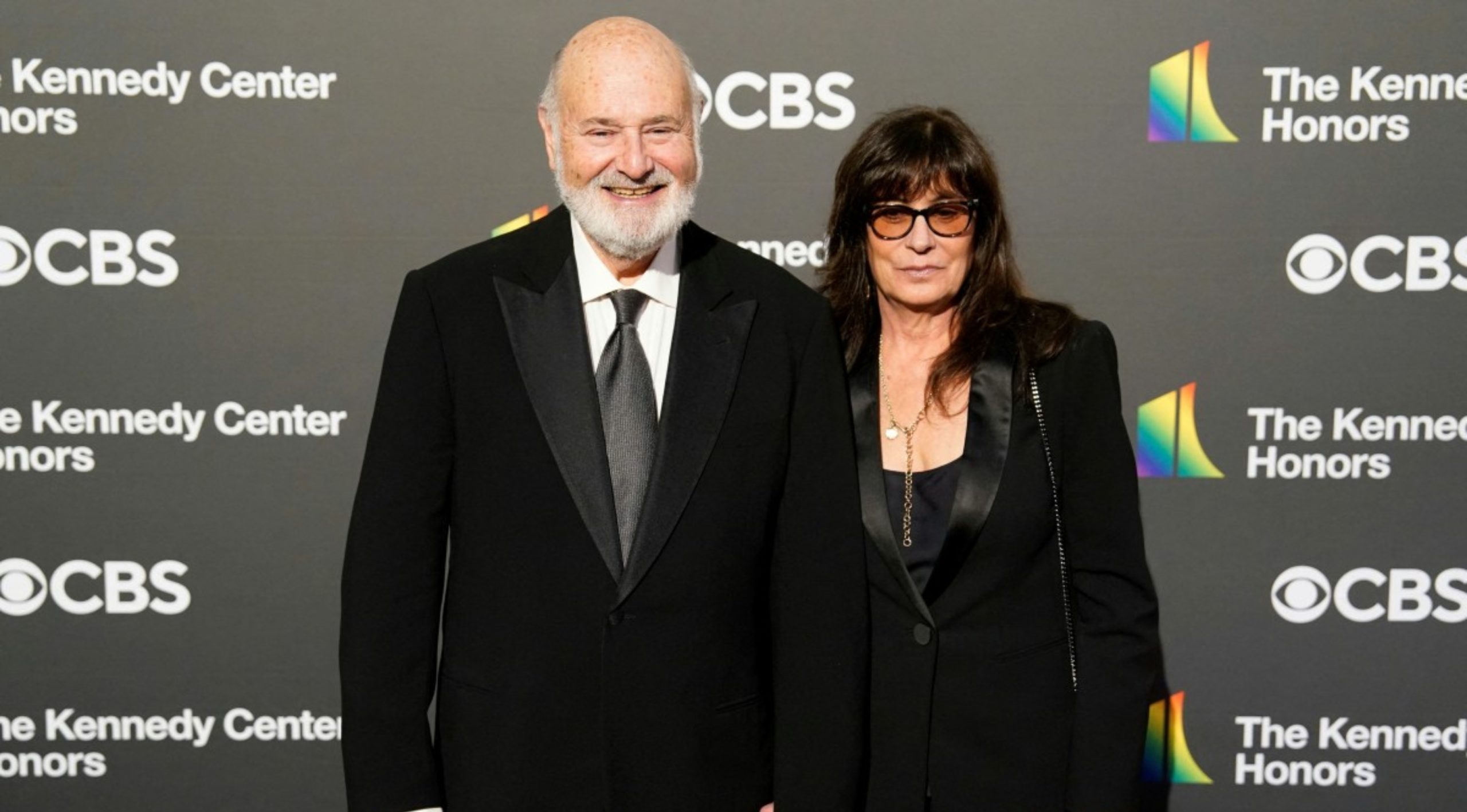
The Los Angeles Police Department (LAPD) is investigating the deaths of Hollywood actor and filmmaker Rob Reinerand his wife as an “apparent homicide,” amid a wave of tributes to the director of classics such as When Harry Met Sally.
According to U.S. media reports on Sunday, Rob Reiner and Michele Singer Reiner were found dead at their Los Angeles mansion with what appeared to be stab wounds.
Several political figures shared messages of condolence following the reported deaths of the director of A Few Good Menand his wife.
While the LAPD did not officially confirm the identities of the victims, it stated that homicide detectives were dispatched to the Reiner residence.
“At this time, no additional details are available and the investigation into an apparent homicide is ongoing,” the Los Angeles Police Department said in a statement posted on social media.
LAPD Deputy Chief Alan Hamilton told reporters that no arrests have been made and that no individuals are currently being questioned as suspects.
“I’m not going to confirm whether anyone is being questioned at this moment or not. We are going to try to speak with as many family members as we can,” Hamilton said.
CNN reported that a family spokesperson confirmed the deaths of Reiner and his wife.
California Governor Gavin Newsom, former U.S. President Barack Obama, and former Vice President Kamala Harrisissued statements expressing their condolences.
International
U.S. and Mexico Reach Deal to Address Water Deficit Under 1944 Treaty
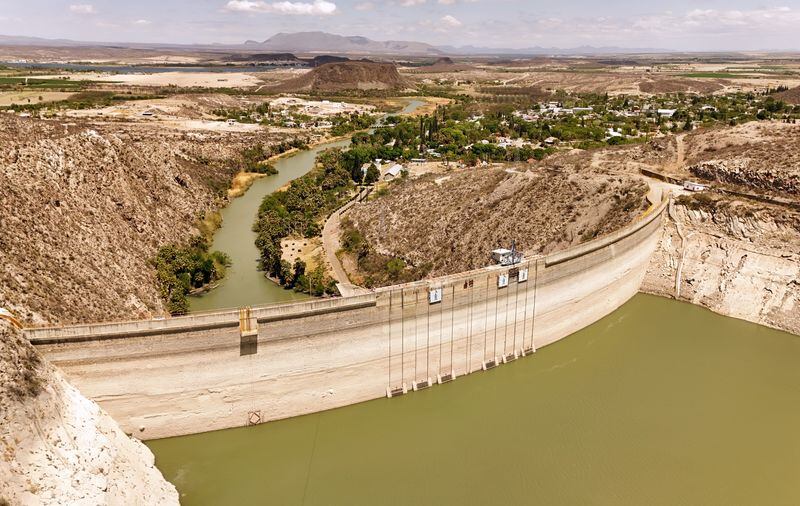
The United States and Mexico have reached an agreement to comply with current water obligations affecting U.S. farmers and ranchers and for Mexico to cover its water deficit to Texas under the 1944 Water Treaty, the U.S. Department of Agriculture said in a statement.
The department уточified that the agreement applies to both the current cycle and the water deficit from the previous cycle.
On Monday, U.S. President Donald Trump accused Mexico of failing to comply with the water-sharing treaty between the two countries, which requires the United States to deliver 1.85 billion cubic meters of water from the Colorado River, while Mexico must supply 432 million cubic meters from the Rio Grande.
Mexico is behind on its commitments. According to Washington, the country has accumulated a deficit of more than one billion cubic meters of water over the past five years.
“This violation is severely harming our beautiful crops and our livestock in Texas,” Trump wrote on Monday.
The Department of Agriculture said on Friday that Mexico had agreed to supply 250 million cubic meters of water starting next week and to work toward closing the shortfall.
Agriculture Secretary Brooke Rollins, quoted in the statement, said Mexico delivered more water in a single year than it had over the previous four years combined.
Trump has said that if Mexico continues to fall short of its obligations, the United States reserves the right to impose 5% tariffs on imported Mexican products.
Mexico’s Deputy Foreign Minister for North America, Roberto Velasco, said that a severe drought in 2022 and 2023prevented the country from meeting its commitments.
International
Several people shot in attack on Brown University campus
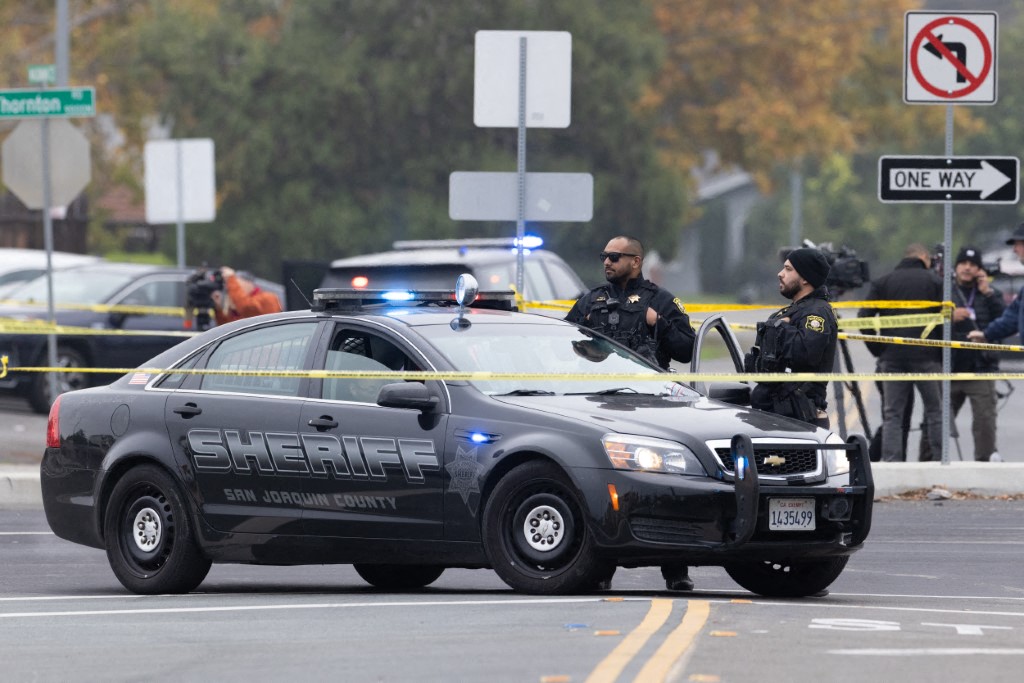
Several people were shot on Saturday in an attack on the campus of Brown University, in the northeastern United States, local police reported.
“Shelter in place and avoid the area until further notice,” the Providence Police Department urged in a post on X. Brown University is located in Providence, the capital of the state of Rhode Island.
U.S. President Donald Trump said on his social media platform Truth Social that he had been briefed on the situation and that the FBI was on the scene.
At 5:52 p.m. local time (11:52 p.m. GMT), Brown University said the situation was still “ongoing” and instructed students to remain sheltered until further notice.
After initially stating that the suspect had been taken into custody, Trump later posted a second message clarifying that local police had walked back that information. “The suspect has NOT been apprehended,” the U.S. president said.
-

 International4 days ago
International4 days agoWashington declares State of Emergency as atmospheric river brings severe flooding
-

 International4 days ago
International4 days agoU.S. to require five-year social media history from tourists under Visa Waiver Program
-

 Central America3 days ago
Central America3 days agoHonduras election crisis deepens as CNE president denounces intimidation attempts
-

 International3 days ago
International3 days agoCuba battles out-of-control dengue and chikungunya epidemic as death toll rises to 44
-

 Central America4 days ago
Central America4 days agoOAS and EU urge honduran political actors to respect vote results and avoid unrest
-

 International3 days ago
International3 days agoColombia says it would not reject Maduro asylum request as regional tensions escalate
-

 International2 days ago
International2 days agoSeveral people shot in attack on Brown University campus
-

 International3 days ago
International3 days agoEcuador on track for record violence as homicides hit highest level in Latin America again
-

 International4 days ago
International4 days agoSix ecuadorian soldiers jailed pending trial for alleged extrajudicial execution
-

 International2 days ago
International2 days agoU.S. and Mexico Reach Deal to Address Water Deficit Under 1944 Treaty
-

 Central America16 hours ago
Central America16 hours agoPanama seizes over three tons of drugs hidden in Caribbean port container
-

 International4 hours ago
International4 hours agoPolice investigate deaths of Rob Reiner and wife as apparent homicide
-

 Central America4 hours ago
Central America4 hours agoOAS urges swift recount in Honduras as election results remain uncertain































